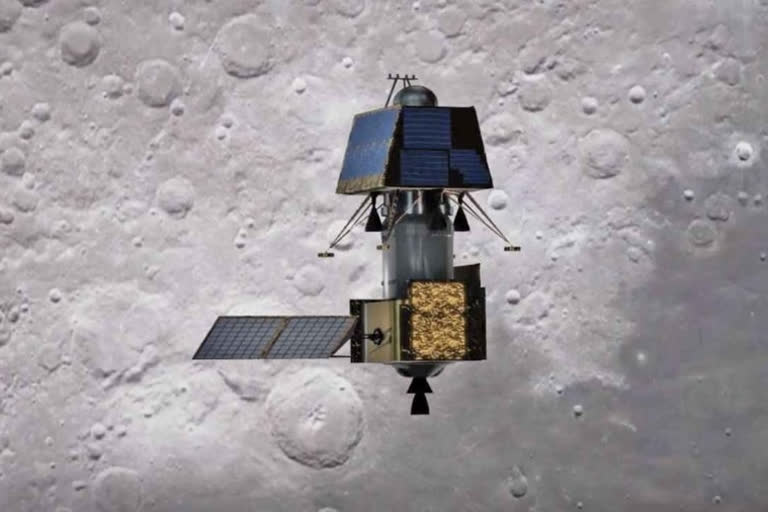Banglore: The Indian Space Research Organisation on Saturday said till date 90 to 95 per cent of the Chandrayaan-2 mission objectives have been accomplished and it would continue contributing to Lunar science despite the loss of communication with the Lander.
The space agency also said the precise launch and mission management had ensured a long life of almost seven years instead of the planned one year for the orbiter.
India's bold mission to soft-land on moon suffered a setback during the wee hours on Saturday, with Chandrayaan-2's 'Vikram' module losing communication with ground stations, just 2.1 km from the lunar surface during its final descent.
"The Vikram Lander followed the planned descent trajectory from its orbit of 35 km to just below 2 km above the surface.
All the systems and sensors of the Lander functioned excellently until this point and proved many new technologies such as variable thrust propulsion technology used in the Lander," ISRO said in an update.
The success criteria was defined for each and every phase of the mission and till date 90 to 95 per cent of the mission's objectives have been accomplished and it would continue contributing to Lunar science , notwithstanding the loss of communication with the Lander, it said.
The successful landing would have made India the fourth country after Russia, the US and China to achieve a soft landing on the moon, also the first to launch amission to the unexplored south pole of the Moon.
Pointing out that the orbiter has already been placed in its intended orbit around the Moon, ISRO said, "It shall enrich our understanding of the moons evolution and mapping of the minerals and water molecules in the Polar Regions, using its eight state-of-the-art scientific instruments."
"The orbiter camera is the highest resolution camera (0.3m) in any lunar mission so far and shall provide high-resolution images which will be immensely useful to the global scientific community," it said, adding that the precise launch and mission management has ensured a long life of almost 7 years instead of the planned one year.
The Chandrayaan-2 orbiter is healthy and safe in the Lunar orbit, an ISRO official had said after the Vikram Lander lost contact with ground stations minutes before the touchdown on Moon's surface.
Stating that Chandrayaan-2 mission was a highly complex mission, which represented a significant technological leap compared to the previous missions of ISRO, the space agency said it brought together an Orbiter, Lander and Rover to explore the unexplored south pole of the Moon.
Since the launch of Chandrayaan-2 on July 22, not only India but the whole world watched its progress from one phase to the next with great expectations and excitement, it said.
This was a unique mission which aimed at studying not just one area of the Moon but all the areas combiningthe exosphere (outermost layer of the earth's atmosphere), the surface as well as the sub-surface of the moon in a single mission, it added.
Also Read: Solar winds could be the reason for Chandrayaan 2's setback



